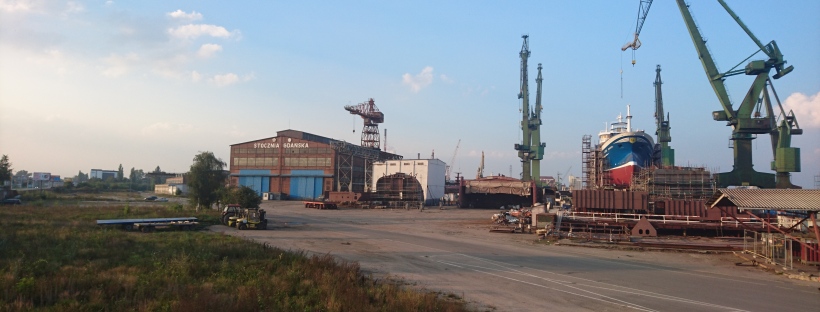So I just finished Stranger Things. I know I’m a bit late on this, but back in July I was out and about in Eastern and Central Europe hearing about other strange things. Anyhow, the show is great. I’m a big fan of its soundscape, which sets classic 80s tracks on a synth-heavy backdrop alongside a genius ability to make everyday objects sound genuinely uncanny. If you haven’t already seen it, check it out (and don’t read this post as there will certainly be some spoilers).
Looking Upside Down from the outside
What’s Stranger Things about then? To me, it’s an excellent exposition on what it means to struggle for a legitimate sense of self as an outsider. Naturally, what I’ve just written sounds like some pretentious pseudo-nonsense, but I do have a humanities degree so I’m allowed to do this sort of thing.
Let me explain a little bit. Every non-FBI character who comes into contact with Eleven, the Upside Down and/or the demogorgon flower-face monster thing are all outsiders. Joyce and Jonathan are perhaps the clearest outsiders, in the way that they are immediately shunned by most townsfolk and live in an isolated house literally outside of the rest of Hawkins. Then we’ve got Lucas, Mike, Dustin and Will, who spend their free-time playing Dungeons & Dragons and getting bullied. Again, Jim is an outsider, initially in the sense that he’s playing that lone-wolf troubled masculine cop character, but also as he’s not actually from Hawkins. Although Nancy is dating popular high-school charmer Steve, her academic conscientiousness positions her as an outsider, as does her friendship with the geeky-looking Barbara. And finally, we have Eleven, who doesn’t need much explaining. It’s no surprise that all of these characters form the main core of the cast.
Importantly, each of these characters experiences loss through the course of the series. This mostly revolves around loss of family or friends. In Jim’s case, the death of his daughter occurs prior to the events of the show, but he is still affected by the memory of this loss, especially in relation to Joyce’s loss of Will. This gives us a set-up whereby every character is figuratively battling the inner demons that result from their loss-related mental turmoil. Of course, for every outsider, this figurative battle ultimately becomes a literal battle with the demogorgon and secretive FBI state operatives. Consequently, the experience of loss further consolidates their outsider status. When Mike begins to understand more about the existence of the monster in the Upside Down, he is reluctant to explain this to his parents, for fear of their disbelief. Likewise, Joyce’s early murmerings about speaking with Will through electrical lights and seeing the monster break through are initially dismissed as madness by Jonathan. And Jim’s paranoia around bugs and coroners arouses the interest of his colleagues, but as a sign of his descent into alcoholicism.
Indeed, the FBI themselves occassionally use this pre-existing outsider status as a tool of repression. Eleven is a ‘freak’ who has to return to Papa, because nobody outside of the institution will ever believe her or love her. Meanwhile, Jim is threatened with a murder set up to look like an overdose, playing up the expectation of others that he is substance dependent. Other characters’ outsider statuses are also used against them by non-government figures. The boys experience constant bullying arising from their apparent nerdiness. Elsewhere, Nancy is slut-shamed, ostensibly as a nasty act from a jealous lover, but also as a result of Steve’s friends’ jealousy towards her intelligence.
As such, each and every one of the outsiders struggles to be taken seriously and to integrate into their immediate society. With some exceptions (notably, heart-throb teacher Mr Clarke), all of these characters develop their most meaningful relationships with each other. This is the essence of their identity struggle. Although they are accepted among themselves, the outsiders all lack legitimacy in the eyes of those that society considers legitimate. This is also the tragically paradoxical beauty of Stranger Things. In a true team effort, the end of the series sees these characters definitively destroy their demon(s) through a combination of a crafty beartrap, Upside Down meandering and a slingshot right in the kisser. However, this victory comes at a price. The sole condition for saving Will is that none of these characters are permitted to talk about the strange circumstances around his disappearance. State repression is boss and the outsider remains firmly outside.
Pessimistic things
So, while my understanding of the first season of Stranger Things is pretty depressing, it rings fairly true. If you’ve ever occupied the position of an outsider, then you’ll know that the struggle for a legitimate identity can’t necessarily be overcome, because you are still an outsider. There is also a rich Western cultural tradition of outsiders, for whom existence is similarly bleak. Mersault from Camus’ The Outsider sticks out for me and there are countless other literary figures who take up this position. The same characters also crop up in cinema. Take the protagonist Glass from The Revenant, who is an outsider both on account of his wife’s ethnicity and his disabling acquired injuries. Glass overcomes a famously physical struggle with his body and terrain, which mirrors his struggle for a place among the other trappers. But how does this pan out for him in the end?
On the other hand…
Having said all of that, Stranger Things might just be a television series where some mad shit happens to some nerdy kids in small-town America and they come across government conspiracies, demogorgons and psychokinesis. Either way, it’s cool as fuck and worth a watch.




